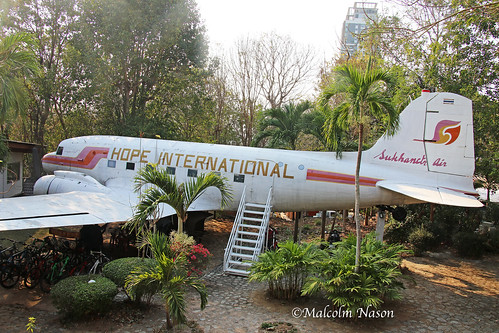A Guide To Rehab Chiang Mai At Any Age
페이지 정보

본문
Introduction
Medication addiction is a complex and pervasive problem that affects individuals, people, and societies worldwide. Its described as the compulsive use of medications despite their harmful effects. Medication addiction is an international issue that transcends cultural, personal, and financial boundaries, affecting individuals of all centuries, races, and experiences. This report is designed to provide a short history of medicine addiction, highlighting its causes, effects, and feasible solutions.
Factors that cause Drug Addiction
Numerous factors play a role in the development of medicine addiction, including hereditary, environmental, and behavioral elements. Genetics be the cause in determining your susceptibility to addiction. Research suggests that certain genetic facets could make certain people prone to becoming dependent on medications. Ecological elements, including contact with drug abuse within the family members or community, additionally play a significant part. In addition, emotional and social facets, including stress, psychological state dilemmas, and peer pressure, can play a role in addiction.
Results of Drug Addiction
 Drug addiction has extreme repercussions on people and culture as a whole. At a person amount, medication addiction can somewhat impair a person's actual and mental health. Substance abuse can cause chronic conditions, including liver and lung harm, heart disease, and a heightened danger of infectious diseases like HIV/AIDS. Furthermore, medication addiction often causes psychological problems such despair, anxiety, and psychosis. In addition, addiction can strain private connections, cause economic uncertainty, while increasing the chances of criminal participation.
Drug addiction has extreme repercussions on people and culture as a whole. At a person amount, medication addiction can somewhat impair a person's actual and mental health. Substance abuse can cause chronic conditions, including liver and lung harm, heart disease, and a heightened danger of infectious diseases like HIV/AIDS. Furthermore, medication addiction often causes psychological problems such despair, anxiety, and psychosis. In addition, addiction can strain private connections, cause economic uncertainty, while increasing the chances of criminal participation.
On a wider scale, drug Addiction rehab Thailand places a large burden on culture. It impacts healthcare methods, as addiction-related treatments and rehabilitation programs tend to be costly. In addition, medication addiction contributes to increased criminal activity rates, as people risk turning to unlawful tasks to maintain their addiction. Furthermore, drug-related accidents and damaged output hinder economic growth and development.
Possible Solutions
Addressing drug addiction needs an extensive and multi-faceted strategy. Prevention efforts should target knowledge and increasing understanding concerning the threats of drug abuse. Efficient strategies consist of school-based avoidance programs, neighborhood awareness promotions, and targeted treatments for vulnerable populations.
 In addition, therapy and rehabilitation choices should be made obtainable and inexpensive to all or any those experiencing medication addiction. This requires establishing rehabilitation facilities, supplying counseling and treatment, and ensuring the accessibility to medication-assisted treatment methods like methadone or buprenorphine. Help sites and aftercare programs are essential in ensuring long-term recovery.
In addition, therapy and rehabilitation choices should be made obtainable and inexpensive to all or any those experiencing medication addiction. This requires establishing rehabilitation facilities, supplying counseling and treatment, and ensuring the accessibility to medication-assisted treatment methods like methadone or buprenorphine. Help sites and aftercare programs are essential in ensuring long-term recovery.
Additionally, there is a necessity for stricter regulation and control into the pharmaceutical business to avoid the abuse of prescription drugs. Making sure the availability of alternative pain administration practices can reduce steadily the dependence on opioids, decreasing the danger of addiction.
Conclusion
Medicine addiction is a complex concern with profound consequences for individuals and society. Its causes tend to be multi-faceted and require several ways to avoidance and therapy. By increasing understanding, boosting education, increasing access to therapy, and applying stricter regulations, society may take considerable tips toward reducing the prevalence and impact of medication addiction. Combating medication addiction necessitates collective attempts from governments, health care experts, communities, and people to mitigate its effects and offer support to those impacted.
Medication addiction is a complex and pervasive problem that affects individuals, people, and societies worldwide. Its described as the compulsive use of medications despite their harmful effects. Medication addiction is an international issue that transcends cultural, personal, and financial boundaries, affecting individuals of all centuries, races, and experiences. This report is designed to provide a short history of medicine addiction, highlighting its causes, effects, and feasible solutions.
Factors that cause Drug Addiction
Numerous factors play a role in the development of medicine addiction, including hereditary, environmental, and behavioral elements. Genetics be the cause in determining your susceptibility to addiction. Research suggests that certain genetic facets could make certain people prone to becoming dependent on medications. Ecological elements, including contact with drug abuse within the family members or community, additionally play a significant part. In addition, emotional and social facets, including stress, psychological state dilemmas, and peer pressure, can play a role in addiction.
Results of Drug Addiction
 Drug addiction has extreme repercussions on people and culture as a whole. At a person amount, medication addiction can somewhat impair a person's actual and mental health. Substance abuse can cause chronic conditions, including liver and lung harm, heart disease, and a heightened danger of infectious diseases like HIV/AIDS. Furthermore, medication addiction often causes psychological problems such despair, anxiety, and psychosis. In addition, addiction can strain private connections, cause economic uncertainty, while increasing the chances of criminal participation.
Drug addiction has extreme repercussions on people and culture as a whole. At a person amount, medication addiction can somewhat impair a person's actual and mental health. Substance abuse can cause chronic conditions, including liver and lung harm, heart disease, and a heightened danger of infectious diseases like HIV/AIDS. Furthermore, medication addiction often causes psychological problems such despair, anxiety, and psychosis. In addition, addiction can strain private connections, cause economic uncertainty, while increasing the chances of criminal participation.On a wider scale, drug Addiction rehab Thailand places a large burden on culture. It impacts healthcare methods, as addiction-related treatments and rehabilitation programs tend to be costly. In addition, medication addiction contributes to increased criminal activity rates, as people risk turning to unlawful tasks to maintain their addiction. Furthermore, drug-related accidents and damaged output hinder economic growth and development.
Possible Solutions
Addressing drug addiction needs an extensive and multi-faceted strategy. Prevention efforts should target knowledge and increasing understanding concerning the threats of drug abuse. Efficient strategies consist of school-based avoidance programs, neighborhood awareness promotions, and targeted treatments for vulnerable populations.
 In addition, therapy and rehabilitation choices should be made obtainable and inexpensive to all or any those experiencing medication addiction. This requires establishing rehabilitation facilities, supplying counseling and treatment, and ensuring the accessibility to medication-assisted treatment methods like methadone or buprenorphine. Help sites and aftercare programs are essential in ensuring long-term recovery.
In addition, therapy and rehabilitation choices should be made obtainable and inexpensive to all or any those experiencing medication addiction. This requires establishing rehabilitation facilities, supplying counseling and treatment, and ensuring the accessibility to medication-assisted treatment methods like methadone or buprenorphine. Help sites and aftercare programs are essential in ensuring long-term recovery.Additionally, there is a necessity for stricter regulation and control into the pharmaceutical business to avoid the abuse of prescription drugs. Making sure the availability of alternative pain administration practices can reduce steadily the dependence on opioids, decreasing the danger of addiction.
Conclusion
Medicine addiction is a complex concern with profound consequences for individuals and society. Its causes tend to be multi-faceted and require several ways to avoidance and therapy. By increasing understanding, boosting education, increasing access to therapy, and applying stricter regulations, society may take considerable tips toward reducing the prevalence and impact of medication addiction. Combating medication addiction necessitates collective attempts from governments, health care experts, communities, and people to mitigate its effects and offer support to those impacted.
- 이전글Have A Corporation Of Own Personal? How You Can Make Your Own Success 24.01.09
- 다음글infórmate sobre los precios de Naprosyne en São Paulo Destoxican para estimular la fertilidad 24.01.09
댓글목록
등록된 댓글이 없습니다.
